Have you ever scrolled through the Internet looking at product manager jobs and wondered if you are good enough to apply? You may experience some doubt about if you have the necessary product development skills to succeed.
Product managers indeed tend to have a long list of skills and responsibilities. But if you are focused and determined, many people can become successful product managers. In fact, you may already have some skills and experience that are in demand from hiring managers.
PRODUCT MANAGEMENT SKILLS:
What makes a good product manager?
How to be a good product manager starts with having the right skills. The product manager skill set will help businesses create and update new products that make revenue while making loyal and happy customers.
Developing the top product manager skills will help you stand out while looking for a job and then help you become a successful manager. There is a long list of in-demand skills, but you may already possess some of them. We’ll review these product management skills later in this article, but first, let’s discuss how to make your skills stand out in a resume or job interview.
How to make your product manager skills stand out in a resume or job interview
Before you get a job interview, you most likely need to send your resume first. So how can you ensure that the hiring manager notices your product management skills?
The first step is to tailor your resume to the company. Sending mass emails with the same generic resume doesn’t get you noticed. However, if you customize your resume to highlight the same skills and responsibilities that are listed in the job description, you are more likely to get noticed.
Take the time to make sure that your resume highlights your strategic thinking skills and any results and outcomes of projects you were involved in.
When you get a job interview, you’ll want to prepare by doing some deep-diving into how your skill set can solve the hiring company’s challenges. Being able to address their problems and how you could solve them will help you stand out from the crowd.
7 KEY MOST IN-DEMAND PRODUCT MANAGER SKILLS IN 2021
Product manager competencies are wide and varied. Even though there are product manager technical skills that are in demand, there are also soft skills needed in the industry. Let’s review the sought-after skills for product management.
1) Interpreting Data
Data is an integral part of succeeding as a product manager, especially when you have access to large amounts of data like SaaS industries normally do. Accurate data can make it easier to make decisions for a product. It’s one thing to have access to data and metrics, but it’s a completely different skill set to interpret what it means.
Being able to analyze data and provide meaningful recommendations to your team is crucial to your success. Data can help show if your efforts are making a difference or what is lacking.
You don’t need to be a math wizard to be able to analyze data. But you should understand how data is collected to analyze it effectively. A foundation in data analysis like Excel or SQL will help enormously.
2) Gaining Customer Insights
Understanding your customer, customer feedback and market research is another skill for product managers to learn. Product managers need to create customer personas, but it’s also helpful to directly speak to customers about what they need.
You need to gain insights into how a customer is using your product and what features they want to see. Product managers can often end up being the only person on a team that can represent customers and speaks up on their behalf.
Being able to empathically understand a customer can only improve your products and help you with other areas such as pricing. Every business is aiming to create customer-first culture, and gaining customer insights is how you accomplish that goal.
3) Strategic Thinking
Product managers need to keep their strategic thinking in top shape. You will most likely use strategic thinking every day as you make decisions every day on the products that you are working on. Good product managers will be able to help envision and create long-lasting products that create value for customers.
Strategic thinking will help product managers develop realistic plans and timelines to meet goals, communicate effectively, ask the right questions, and identify new opportunities. This skill will help a business grow and maintain a happy customer base.
4) Basic Understanding of Complementary Fields
Product managers talk to a lot of different people and teams and get them on the same page about what the company is doing. It can get messy, especially if you’re not entirely sure how a certain team functions.
This is why it’s incredibly helpful for product managers to have a basic understanding of complementary fields. The knowledge you gain will help you communicate with related teams and understand their point of view.
Product managers may want to brush up on their understanding of running a business, UX design, engineering, and other technical aspects.
5) Negotiation Skills
Negotiation is often an underappreciated skill of product managers. But product managers are constantly having to use negotiation skills to create strategies and develop roadmaps. There’s often numerous input from many different team members all with their own agenda for the product. One of the job duties of product managers is to set priorities and manage conflicting opinions. The skill you need to accomplish this is negotiation.
There may not be a lot of room for compromise if you’re focused on creating a customer-first product. The customer wants what it wants. This is why it’s important to be armed with your data analysis results to share with stakeholders, such as your engineering team. It can help stakeholders make informed decisions and compromises.
6) Prioritize Tasks
Prioritization skills are also crucial for product managers. You will end up needing to prioritize your own tasks, prioritize the right product features for release in your product roadmap, and prioritize which challenges to solve first.
Being able to prioritize also means being able to delegate accordingly. Creating clearly defined tasks and responsibilities will help various team members accomplish their job. Good delegation skills also mean that you empower those around you to complete their tasks and responsibilities. This will help increase productivity within your company and streamline the process of releasing or updating product features with your development team.
7) Excellent Listener
Listening is probably the most important communication skill a product manager can develop. Product managers do a lot of listening to their product team, management, complementary teams, and customers. But they need to do active listening, which involves focused attention and asking the right questions.
If you want to provide an environment where people open up about their concerns to you, it’s important to make them feel comfortable enough to speak up. Being known as an empathetic leader will help establish yourself as an excellent listener.
HOW TO IMPROVE YOUR PRODUCT MANAGEMENT SKILLS
The product manager key skills are critical to accomplishing your job. Whether or not you think you currently have the skills of a product manager, it’s always important to continue to stay educated and updated on the latest trends in the industry.
Here are a few ideas to improve your product management skills.
1) Network with Product Managers
Networking with product managers, especially ones that work in the same industry that you want to work in, can be immensely helpful in determining what product manager key skills you need to work on.
Talking with product managers can help you learn more about their jobs and what skills you need to work on. Discussions like this can also show you the bigger picture of what it’s like to work as a product manager and the various issues and solutions that happen within companies.
2) Stay Up to Date on Related News
Reading blogs, watching the news, or listening to podcasts within your industry is one way to improve your product management skills. By understanding the numerous elements that go into running a business, and ultimately creating a customer-centric product, will help you become a better project manager.
You will work with different teams as varied as engineering and marketing. When you can understand their field and perspective, it will be easier for you to understand their needs and convey them to other people.
3) Build a Portfolio Outside of Work
Creating a portfolio of product management work can help you stand out from the crowd and also practice and improve your skill set. If you find that you’re lacking opportunities at your current job position, you can create your own projects to prove that you have the skills needed to succeed as a product manager.
You can create a portfolio that contains a start-to-finish look at building a product from conception to the finished product. Taking the time to explain your thought process will aid hiring managers in determining how you will manage a product.
4) Get Relevant Education
Product managers don’t need a formal education to get jobs, but it can be a great way to build credibility and gain mentorship. While a college degree may look nice on resumes, you can also consider continuing education courses to learn new skills.
If you lack direct experience as a product manager, putting education at the top of your resume is one way to establish that you have knowledge and expertise in related areas.
5) Learn How to Communicate
Product managers are one of few employees who interact with different teams daily. Every day you are completing tasks that aren’t the same as yesterday’s tasks. One day you’re making a presentation to management, and the next day you are discussing user workflows with the design team. On top of that, you need to keep all teams on the same page and working smoothly.
The key to ensuring that you can successfully do your job is to communicate clearly. Work on your public speaking skills, learn how to listen and ask questions, and write effectively. All of these communication skills will help you become a better product manager.
6) Develop Empathy
Empathy is the ability to understand and share the feelings of another person. You may wonder how empathy has anything to do with envisioning a product and then creating an action plan to create it.
It turns out that empathy is an essential part of developing products. Product managers often have to have empathy for multiple stakeholders and become a liaison between them. Empathy is also critical for finding customers’ pain points and creating solutions for them.
Without empathy, product managers may not fully understand their customers and potentially cause friction between stakeholders.
7) Think Critically About the Products You Use
Developing strategic thinking skills doesn’t have to be complicated. Just look at the products you already use. Think about the product strategy decisions they made and why they might have decided to do it that way. What’s the bigger picture? What did they hope to achieve?
Understanding these strategies will help you make better decisions and think more critically about your products.
8) Build Transferable Skills
If you think you don’t have the skills of a great product manager, you may want to think again. The best product managers are often multi-talented, so there’s a chance that you already have skills or experience that are desirable for hiring managers.
Some common skills that are transferable to product management can include time management, problem-solving, project management, UX design, decision making, agile development, and collaboration with different teams. These are transferable skills you can add to your resume and expand on during your job interview.
If you find that you’re lacking in transferable skills, see if you can pitch new projects in your current job position that you can use to build those skills.
KEY TAKEAWAYS ABOUT SKILLS NEEDED FOR PRODUCT MANAGEMENT
Product management can be a competitive market, so it’s vital to obtain the most important skills for product managers. The future of product management will rely on managers to never stop learning and developing the skills listed above.
Consumer needs will change in the future and product managers will need to continuously update their skill set to stay competitive. While technical skills are important, soft skills, interpersonal skills and emotional intelligence are also enormously valued in product management. Above all, product managers need to be leaders and lead the way to success.


